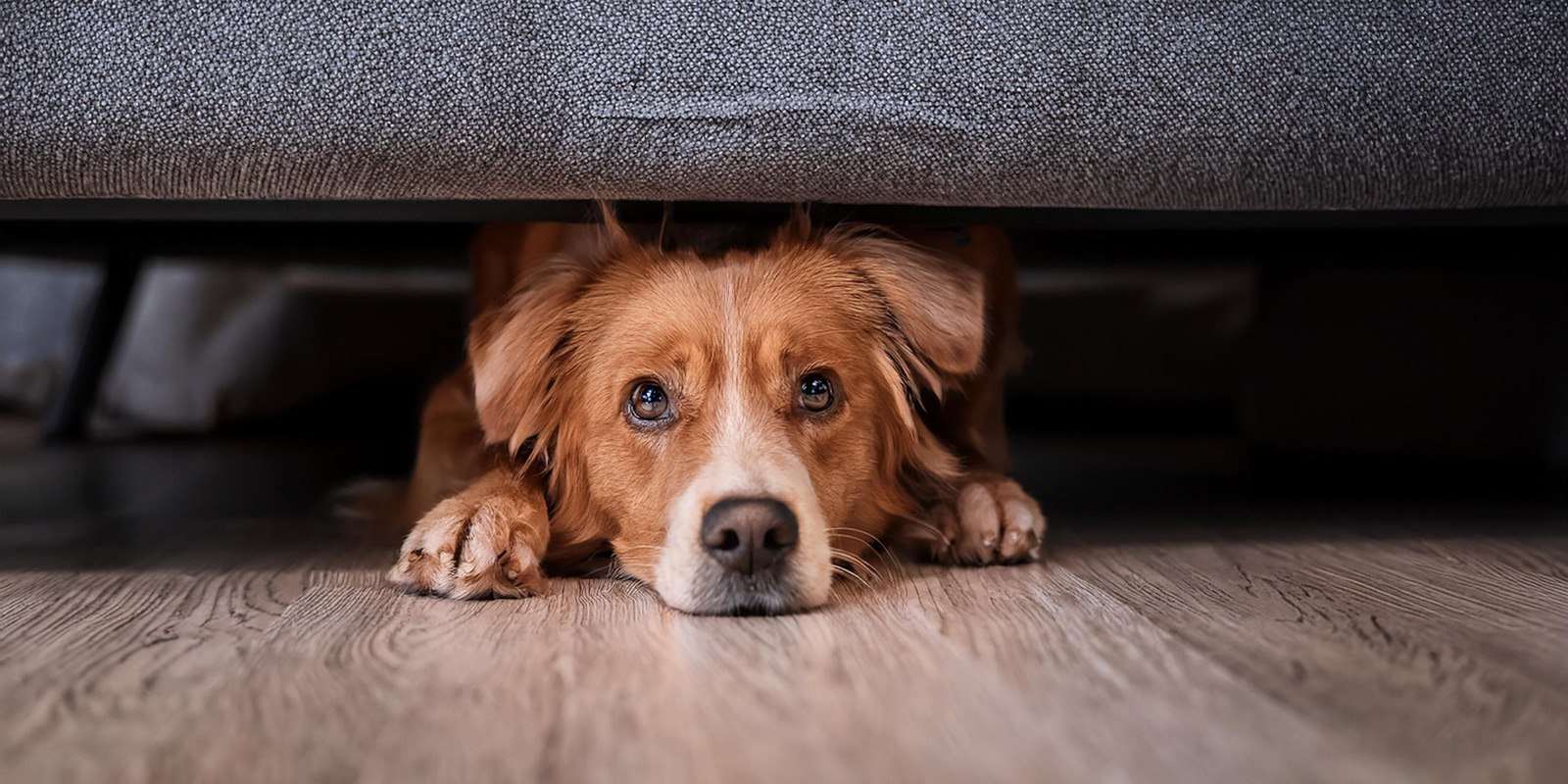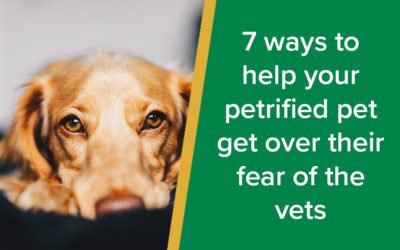
Common Fears and Phobias in Pets
Pets can develop a variety of fears and phobias. Some of the most common include:
- Loud Noises: Thunderstorms, fireworks, and vacuum cleaners are common triggers for fear in dogs and cats.
- Separation Anxiety: Pets may become anxious when left alone for long periods or when their routine changes.
- Strangers and New Environments: Unfamiliar people, places, and even other animals can cause fear, especially in pets that are not well socialised.
- Car Rides: Many pets experience anxiety during car journeys, whether from motion sickness or fear of the unknown.

Steps to Help Your Pet Overcome Their Fears
1. Identify the Triggers
The first step in helping your pet overcome their fears is identifying what triggers their anxiety. Observe your pet’s behaviour in different situations to pinpoint the cause of their fear. This could be a specific sound, situation, or environment.
2. Gradual Exposure and Desensitisation
Once you know what your pet is afraid of, you can work on desensitising them to the trigger. Gradual exposure to the fear-inducing situation, paired with positive reinforcement, can help your pet build confidence over time. For example, if your dog is afraid of fireworks, try playing firework sounds at a low volume while rewarding calm behaviour with treats.
3. Create a Safe Space
Providing a safe, comfortable space for your pet to retreat to when they’re feeling anxious can help reduce their stress. This could be a quiet room, a crate with soft bedding, or a familiar area where they feel secure.
4. Use Positive Reinforcement
Positive reinforcement is key to helping your pet associate fear-inducing situations with positive outcomes. Reward your pet with treats, praise, or play when they remain calm in the presence of their fear trigger. Over time, this will help them build a positive association and reduce their fear response.
5. Try Calming Products
There are various calming products available that can help reduce your pet’s anxiety. These include calming sprays, pheromone diffusers, and anxiety wraps. These products can provide added support when your pet is facing a stressful situation.
6. Consult a Behaviourist or Vet
If your pet’s fears and phobias are severe or aren’t improving with gradual exposure, it may be time to consult a professional. A pet behaviourist or vet can help assess your pet’s behaviour and create a tailored plan to help them overcome their fears.
When to Seek Professional Help
If your pet’s fear is causing distress or leading to aggressive behaviour, don’t hesitate to seek professional help. Your vet can offer advice, refer you to a behaviourist, or recommend medications that can ease your pet’s anxiety.
Need further advice?
If you’d like to discuss any behavioural issues with us, book an appointment, and we’ll do everything we can to help.
Call your local Parkside Vets branch:
Dundee: 01382 810777 / Barnhill: 01382 739634 / Arbroath: 01241 293777
Get UNLIMITED consultations
At Parkside Vets, our Premier Pet Club includes UNLIMITED Consultations, which include behavioural advice and support. This ensures your pet’s emotional well-being is prioritised alongside its physical health.


